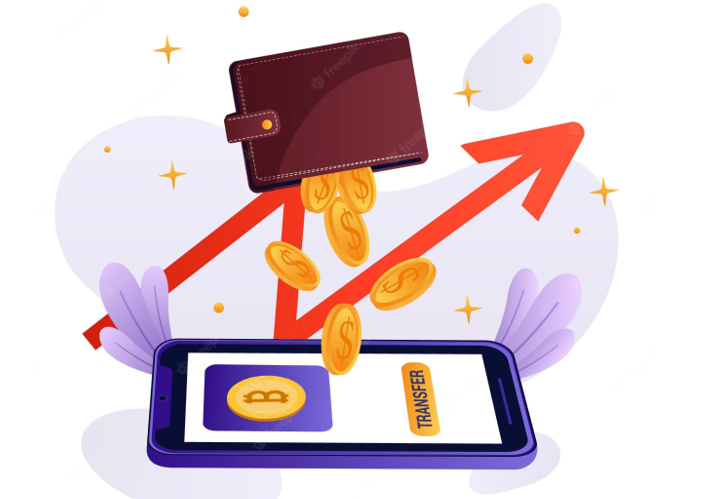Money is the pillar of our civilization. Throughout its existence, it has changed its form a few times, being adjusted to the needs of society. Not so long ago, people were using paper money mostly, and bank cards. Yet now, with all the leaps of digitalization, the attention is dragged to digital, or cryptocurrency. Considering the growing number of people using cryptocurrency, there is a high demand for the means of keeping it safe – the crypto-wallets. Crypto wallets have gone a long way in development, as the requirements regarding safety and security keep extending. How to choose a crypto wallet to ensure the safety of your money?

Contents [hide]
What are the crypto wallets?
A cryptocurrency wallet, just like a traditional wallet, provides its owner with storage for assets, yet not the currency, but the keys to it (public and private). As long as the cryptocurrency is non-tangible, it can only be stored in a virtual environment, created by the specific software and hardware.
Apart from its primary function of keeping the private keys safe, and managing cryptocurrency balances, a crypto wallet provides its users with the opportunity to conduct any type of transaction.
Key functions of crypto wallets:
- Cryptocurrency management – every owner keeps control over all the money ‘movement’.
- Transactions – every user is enabled with the ability to send and receive money.
- Key management – every type of cryptocurrency exists on the blockchain as a public key address. A crypto wallet allows users to manage their private encryption keys.
- Username identity – crypto wallets allow transactions with a username that is associated with a public key on a blockchain.
Types of crypto wallets
The choice of a crypto wallet is the choice of vendor, its service, and its deployment approach. There are two major types of crypto wallets – hot and cold wallets, which are based on the connectivity to the Internet:
1) Hot wallets
The most user-friendly option, as it is always accessible through the network. Hot wallets work best for trading and exchange, as they are always within easy reach.
The online form of the wallet is more susceptible to hacking and malfunctions. While the crypto wallet providers implement all the available cutting-edge security solutions, the users often fail to create complicated passwords, making their accounts easy prey.
Hot wallets include:
- Online (web) wallets
The most common type of crypto wallet. The online wallet is accessed by a simple login procedure. The cryptographic keys are held by an online crypto exchange service.
- Desktop wallets
The keys are stored in an application on the desktop system.
- Mobile wallets
The public and private keys are stored on a mobile application.
2) Cold wallets
In case there are big amounts of cryptocurrency, it is highly recommended to keep it in cold storage, as it is off the internet.
Cold wallets include paper and hardware wallets:
- A Paper Wallet involves printing public and private keys, making them accessible through the QR code. As long as printed keys have no connection to hardware, they are fully protected from hackers. Yet, the physical space requires security measures as well. When choosing a crypto wallet, it is important to check if they offer the possibility to create a wallet offline.
- A Hardware Wallet is a combination of paper wallet security with the advantages of software. A hardware wallet keeps no keys online, but access is easier than a paper wallet. The private key is stored on a physical body, which is a USB drive.
Another important division of the crypto wallet is based on the amount of control the user can have:
- Custodial wallets – the control over all operations is managed by a third party, which is the cryptocurrency exchange.
- Non-custodial wallets – the control is held by the individual who has private keys and is responsible for keeping them safe.
More from us: The cost of developing a cryptocurrency
How to choose a crypto wallet?
As you probably want to keep the keys under your control, you will need a non-custodial form of a wallet,
There are a few major characteristics of the crypto wallet to look for:
- Reputation – it is formed by a history of a wallet’s existence, a customer reviews on various resources.
- Security – a combination of Pin-code, facial recognition, and fingerprints works the best.
- Access to private keys – the one who has access to the keys keeps control over the crypto. Ensure that the crypto wallet allows your access to private keys.
- Fee customization – the wallet to choose allows to customize the fees to pay for a public blockchain validator. Typically they have fast, medium, and slow presets.
The bottom line
The crypto wallet helps to keep your digital assets under control, fully protected from hacking or other threads. The performance of the crypto wallet provider is always directed toward creating a highly secure environment to keep the keys safe. Yet remember, once lost, the key can not be restored, thus, you can lose everything.






